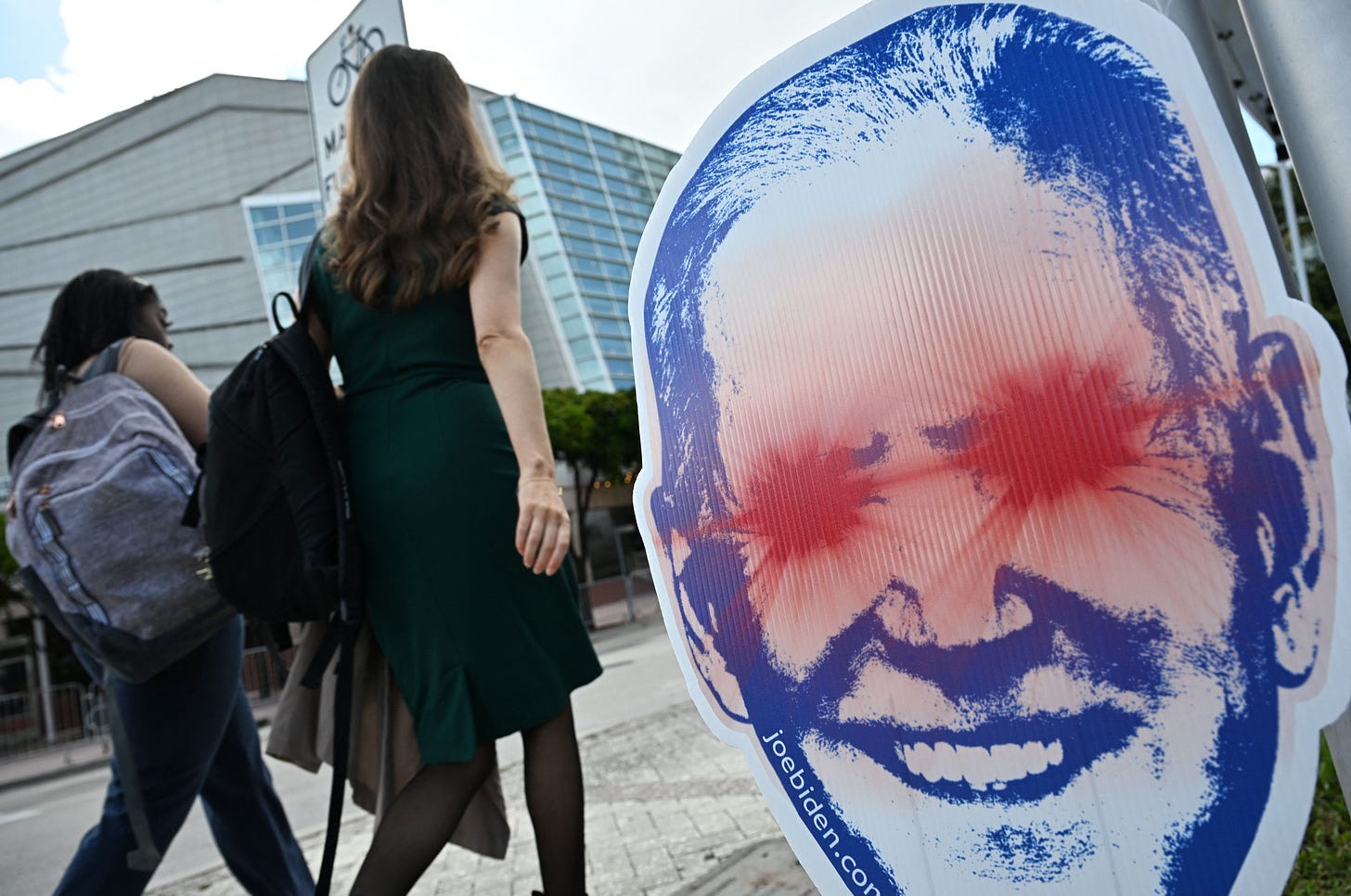ON MESSAGE: Getting Dark Brandon on the campaign trail
Anat Shenker-Osorio returns to talk about Joe Biden's messaging challenges — and how he might overcome them
Joe Biden and Kamala Harris have officially been on the campaign trail for nearly two weeks, and now that the Democratic operation is in full swing, we turn again to messaging guru Anat Shenker-Osorio for her take on how things are going.
The Biden campaign already faces some serious headwinds. Some initial polling has been ominous, voters are hesitant about the president’s age, Biden’s foreign policy positions are unpopular on the left, and the campaign’s early efforts to tout good news on the economy haven’t made a huge dent.
We asked Anat, who has years of experience dealing with messaging on difficult topics, how she thinks about the challenge of making the case for a second Biden term.
If you’re curious to hear more about Anat’s work, please check out her excellent podcast, Words to Win By, now in its third season. Episode 2 premieres on January 23.
Why isn’t Biden getting credit for real accomplishments?
Right now, the dominant stories are about how Biden's poll numbers are bad, how he's too old, and how people don't like him. But there are miles and miles and miles to go before we sleep, and people's minds change.
There’s been a lot of agita around the economic question and the question as to why Democrats (and Biden specifically) never get the credit that they deserve on the economy. There was an extraordinary and unusual amount of early investment of time, of research, and in ads by the Democratic Party around the Inflation Reduction Act. A lot of that focused on touting accomplishments, the hypothesis being, “We’ve just got to tell the people. We will tell the people the thing, and then the people will be like, ‘The thing is magically delicious, and I love the bringers of the thing!’”
Shockingly, that is not what happened.
Now, some people might say, “It's because we haven't done it enough. We have not done it enough, we've not done it consistently enough.” And that’s not it.
So what does work?
We did a study this past year (I titled it, “Bar Graphs Will Continue Until Morale Increases”); this was a randomized controlled trial, a better standard than a survey, and in it we tested messaging based on agenda versus accomplishments.
We gave some people an example of an accomplishment: the jobs bar graph, or the inflation line graph, or messages around “Here are the wonderful things the IRA did for you." And then we gave others an agenda item, something about the future.
And, lo and behold, it turns out the canard is true: elections are about the future, not the past. People don't actually want to hear, “This is what I did for you.” They want to hear, “This is what I'm going to do for you.”
They also don't want to hear about the economy in the abstract. It doesn’t work to say, “Here is how we grew the GDP,” or, “Here is how we made the economy bigger.” They don’t even want to hear about growing the middle class (and, by the way, young people really don't give a shit about that).
Instead, if you’re going to talk about the economy, people want to hear, “Here's how we're making a better life for you.” And that can involve practical details: “You’ll be able to go to the pharmacy, you can buy your insulin, and you're not getting sick.” You can point to things in people's lives that feel tangible and meaningful.
Young people are defecting. Is there any way to get them back?





